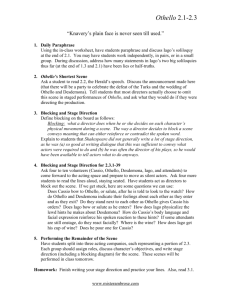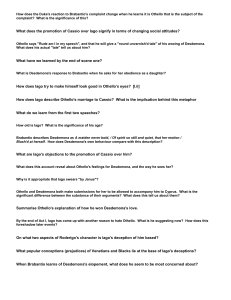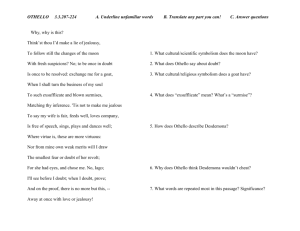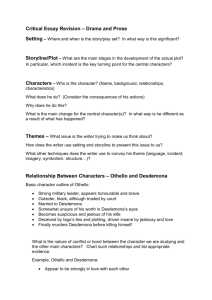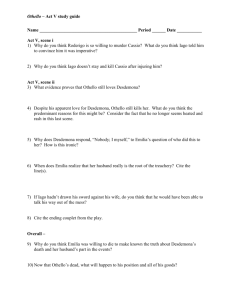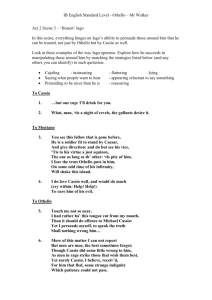The Gender Roles of Women In The Play Othello
advertisement
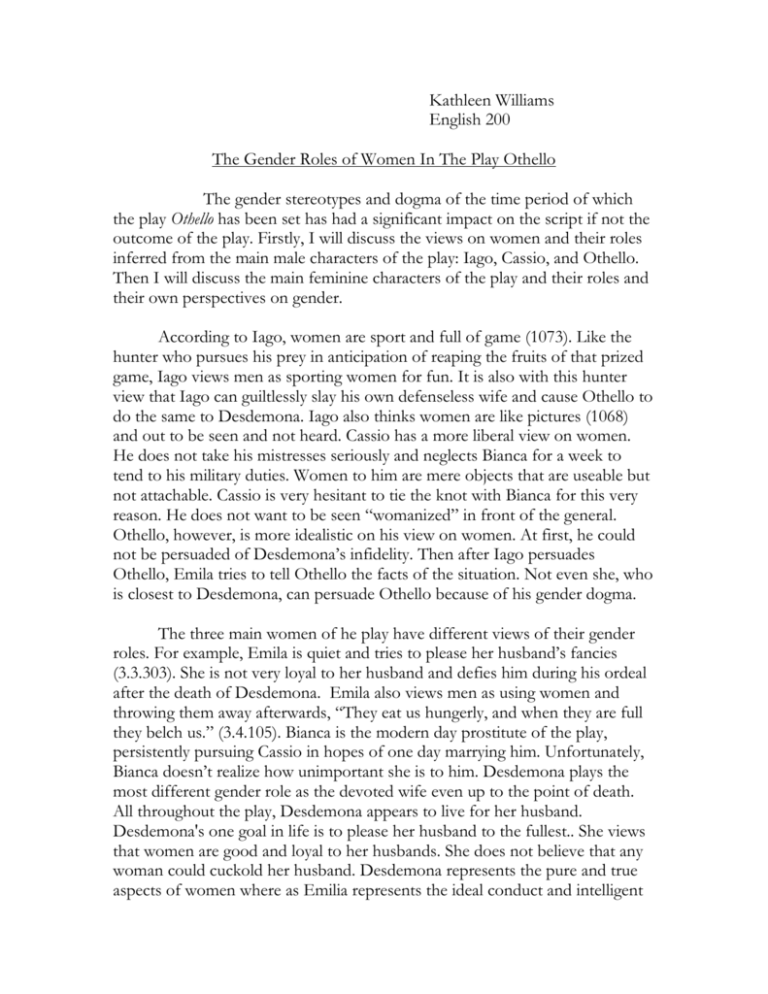
Kathleen Williams English 200 The Gender Roles of Women In The Play Othello The gender stereotypes and dogma of the time period of which the play Othello has been set has had a significant impact on the script if not the outcome of the play. Firstly, I will discuss the views on women and their roles inferred from the main male characters of the play: Iago, Cassio, and Othello. Then I will discuss the main feminine characters of the play and their roles and their own perspectives on gender. According to Iago, women are sport and full of game (1073). Like the hunter who pursues his prey in anticipation of reaping the fruits of that prized game, Iago views men as sporting women for fun. It is also with this hunter view that Iago can guiltlessly slay his own defenseless wife and cause Othello to do the same to Desdemona. Iago also thinks women are like pictures (1068) and out to be seen and not heard. Cassio has a more liberal view on women. He does not take his mistresses seriously and neglects Bianca for a week to tend to his military duties. Women to him are mere objects that are useable but not attachable. Cassio is very hesitant to tie the knot with Bianca for this very reason. He does not want to be seen “womanized” in front of the general. Othello, however, is more idealistic on his view on women. At first, he could not be persuaded of Desdemona’s infidelity. Then after Iago persuades Othello, Emila tries to tell Othello the facts of the situation. Not even she, who is closest to Desdemona, can persuade Othello because of his gender dogma. The three main women of he play have different views of their gender roles. For example, Emila is quiet and tries to please her husband’s fancies (3.3.303). She is not very loyal to her husband and defies him during his ordeal after the death of Desdemona. Emila also views men as using women and throwing them away afterwards, “They eat us hungerly, and when they are full they belch us.” (3.4.105). Bianca is the modern day prostitute of the play, persistently pursuing Cassio in hopes of one day marrying him. Unfortunately, Bianca doesn’t realize how unimportant she is to him. Desdemona plays the most different gender role as the devoted wife even up to the point of death. All throughout the play, Desdemona appears to live for her husband. Desdemona's one goal in life is to please her husband to the fullest.. She views that women are good and loyal to her husbands. She does not believe that any woman could cuckold her husband. Desdemona represents the pure and true aspects of women where as Emilia represents the ideal conduct and intelligent aspects, and Bianca represents the beauty aspects. These three women represent the ideals of women during that time period and perhaps in other time periods. In conclusion, the gender roles and stereotypes in the play Othello have had a significant impact on how the male characters of the play treated the female characters and vice versa. Women were expected to be obedient and loyal to men, especially their husbands. Each character has certain views and played their roles accordingly.

